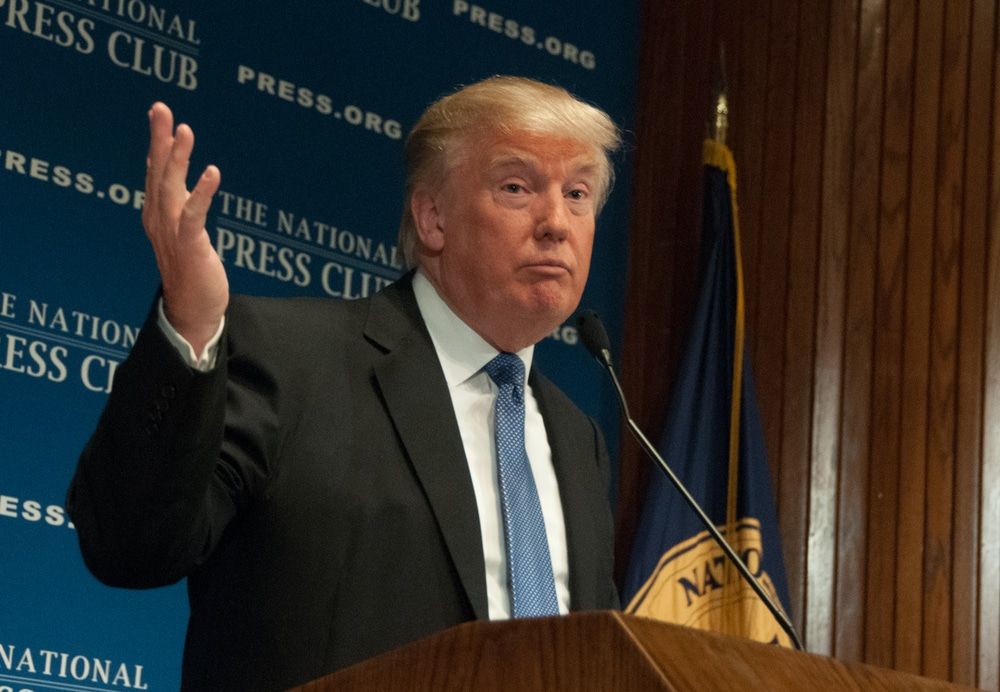Responding to the Age of Trump
By John Mecklin | November 9, 2016

Perhaps the Washington Post headline expressed the global reaction most evocatively: “World gasps in collective disbelief following Trump's election.” David Ignatius wrote a wonderful and equally gasp-inspiring column for the Post, too: "What President Trump’s foreign policy will look like." The New York Times’ Peter Baker laid out some of the more specific international issues raised by the election of Donald Trump, writing that he “promised to build a wall along the Mexican border and temporarily bar Muslim immigrants from entering the United States. He questioned Washington’s longstanding commitment to NATO allies, called for cutting foreign aid, praised President Vladimir V. Putin of Russia, vowed to rip up international trade deals, assailed China, and suggested Asian allies develop nuclear weapons.”
Indeed, nuclear angst loomed large in day-after-election coverage, with the Daily Mirror offering a double-barreled headline straight out of its tabloid persona: “When does Donald Trump get the nuclear codes–and how easy is it for him to use them?” Meanwhile, the Reuters news service rightly noted that “Trump election puts Iran nuclear deal on shaky ground.”
In an email newsletter, Times columnist David Leonhardt looked unblinkingly at the climate change implications of the Trump upset: “To take Trump and the Republican majorities in Congress at their word, they don’t care. But here’s the thing: Eventually, they or their successors will care. The damage from climate change will not spare Republicans. It won’t spare anyone. Nothing matters more than finding ways to accelerate the arrival of the day when more Republicans do care.” But that day certainly isn’t today, as the Associated Press, writing about the Paris climate accord, noted here: “Trump Win Raises Questions about UN Climate Deal.”
The election of Donald John Trump as president of the United States has international security implications that the Bulletin, its array of expert authors, and its Science and Security Board will explore in coming weeks, months, and, very likely, years. The Age of Trump is upon us, raising an obvious question: How can those who are concerned about existential threats—most notably, nuclear weapons and climate change–best respond to a Trump administration, so as to increase the odds that humanity will be preserved over the long-term? There is no obvious answer to that question, but that is all the more reason to look hard for best options. And then to look harder.
Publication Name: Washington Post
To read what we're reading, click here
Together, we make the world safer.
The Bulletin elevates expert voices above the noise. But as an independent nonprofit organization, our operations depend on the support of readers like you. Help us continue to deliver quality journalism that holds leaders accountable. Your support of our work at any level is important. In return, we promise our coverage will be understandable, influential, vigilant, solution-oriented, and fair-minded. Together we can make a difference.















